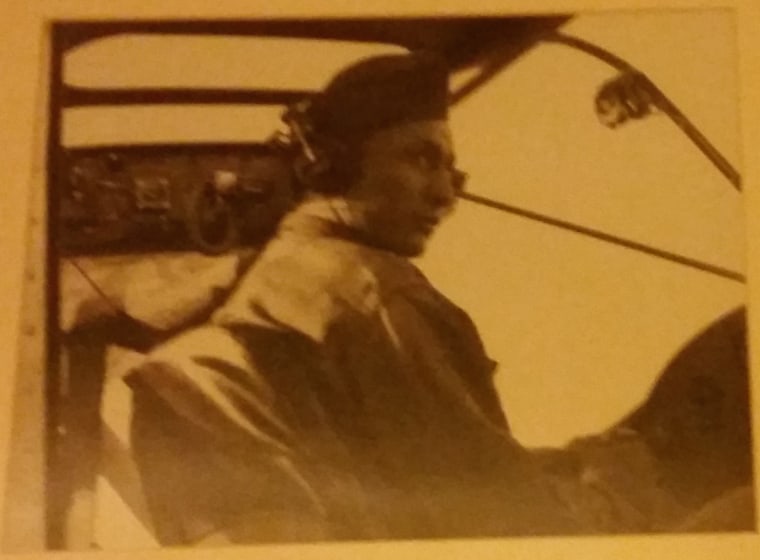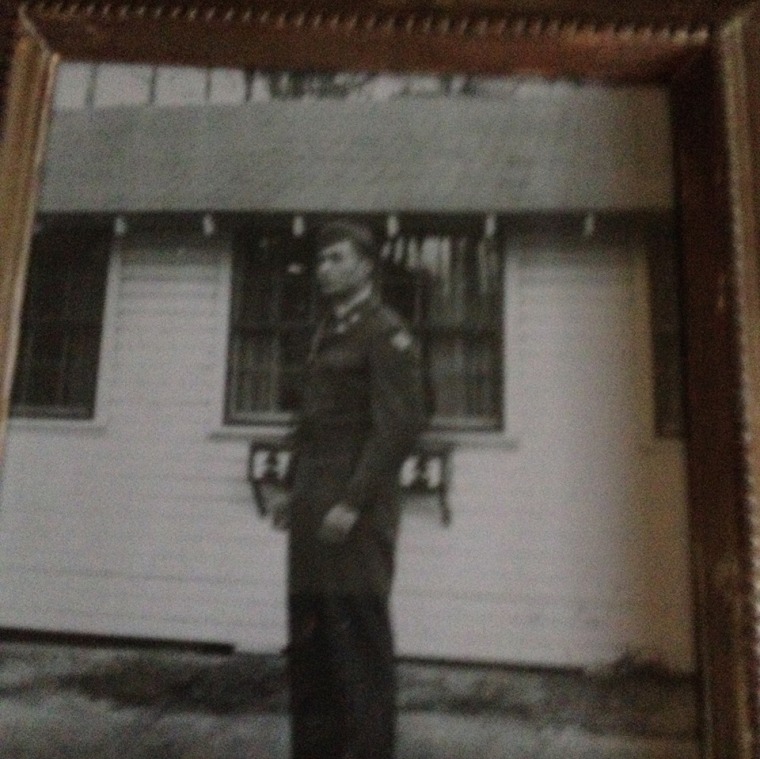
FRESNO, California — I’m not going to build an elaborate altar. I’m not going to dance around a cemetery in face paint, or stuff my face with pan de muerto on Día de Muertos. That’s not the way I plan to remember my father, who passed away four years ago. Mine is a different sort of celebration.
I grew up in a Mexican household full of tradition, but the over commercialization of the celebration has dampened it. Instead, I want to light a candle near a picture of Dad, Juan Madrid Colón, and talk to him again. Like some Hispanics, I believe the spirit doesn’t die and revisits loved ones on Nov. 1 through Nov. 2.
I'm not the only one who feels the same.
“There are some Latinos who don't go to the cemetery to celebrate nor create altars. Some just light candles next to pictures at home,” said Cristina Herrera, associate professor and chair of the Department of Chicano and Latin American Studies at California State University, Fresno.
RELATED: Día de Muertos Altars: Loving Tribute to Deceased Family, Friends
“We're definitely seeing the commercialization of the celebration in border regions, and some parts of Mexico, as a result of globalization, are opting to celebrate Halloween. But I think that we have to make clear that there is no single way of celebrating this holiday,” Herrera said. “I would argue that any remembrance of our loved ones, whether it be through grand or small gestures, is celebration, even if we do not explicitly connect it to Day of the Dead."
Brenda Noriega, Hispanic Ministries Coordinator of the Diocese of Fresno, believes that fewer Hispanics uphold the belief that spirits come to visit during that ancient tradition.
“Nowadays it is not that common for Latinos to believe that the spirit of their loved ones stay around after death,” Noriega said. “Those beliefs come from ancient indigenous practices. For many people, on Día de Muertos the celebration is reduced to visiting the grave of their loved ones, to gather as a family and make a meal together.”
However, the ancient indigenous tradition hasn’t died, at least, not with me.
It’s a time when I hope to remember my loved ones who have passed. This year, it’s my Dad.
RELATED: 7 Día de Muertos Activities With Your Kids
Frail. Stiff. Ghostly. That’s how my father looked as he slumbered between two worlds on October 16, 2012. I knew my dad had just a few hours left to live; his heartbeats had become faint. Life was temporary: a time clock that eventually stops beating. Dad died of prostrate cancer at the age of 85.
Dad’s death wasn’t easy. My mom, Eglantina Colón, and I waited long-grueling hours until he could find peace. Seven hours passed like thirty years. He was neither here nor there. Cancer had beaten him up badly. His loud, tough-talking voice had been reduced to whimpers, grunts, and mumbles. His tall firm body had collapsed from the outside in, and from the inside out.

Dad, who served in U.S. Army’s Airborne division during the Korean War, became a sack of bones. This stubborn man was a fighter. He once told me he jumped up and down all night long during the Korean War so he wouldn’t freeze to death. He witnessed others fall asleep and never wake up.
Shortly before 5 a.m., I stepped in to check on him and spotted mom with a somber face. She nervously muttered, “Ya se fue” (He has passed away). He had left this world with La Pelona (the bald lady), the humorous name Dad graciously gave Death.
I felt immense relief for him and for mom. He was severely medicated with painkillers, but it didn’t alleviate all his suffering. For weeks, he couldn’t savor or swallow the food he loved most: menudo and carne con arroz con garbanzo, a meat, rice and chickpea stew.
I rejoiced that his spirit had left his body, but somehow I knew it wouldn’t leave this house so easily.
When two mortuary staff workers from Abbey Funeraria arrived at my parents’ Fresno home, they quickly fastened the corpse onto the cold, metal gurney and covered it with a sheet. We watched solemnly as they drove away with him. Three days later, I picked up Dad’s ashes in a cherry wood box from Abbey Funeraria, a funeral home in downtown Fresno.
RELATED: 'Muertoons' Animators Find Success In Día De Muertos
“How are you doing, Dad,” I whispered as I tucked him in a corner in the trunk of my Toyota Camry and drove him home. As I walked in with the urn clutched in my hands, my mom approached me in the living room.
“We need to go to the cemetery to place the urn in the niche,” she urged. “He needs to rest,” she whispered in Spanish as she scanned the hallway.
I didn’t disagree with mom. Dad’s ashes had to be stored in the family niche at St. Peter’s Cemetery in Fresno. I grew up in a Mexican Catholic household that believed in the saints, the afterlife, psychic abilities, and in the power of brujos who performed white and black magic. Dad wasn’t going to become a restless spirit, moaning in pain and suffering.
I made sure he got proper treatment. He deserved that. I learned so much from him and received great advice, such as questioning social norms. I remember him still pointing to his favorite book, OlvÍdate de El Alamo, by Rafael Trujillo. Dad embraced the Mexican perspective of that historical event, and urged me to always listen to different perspectives. Maybe that’s why I became a journalist later in life.
He also taught me the importance of a hard work ethic. I recall him telling me that he became a U.S. citizen after serving in the military and took whatever job he could find after he was honorably discharged in 1953. Through his military contacts, he got a job in Germany, where he lived for four years. He then returned to the United States fluent in German, English and Spanish.
Before Dad died, I invited Rev. Deacon Ricardo Deleon from St. Anthony of Padua to allow my father to make his last confession. I then took the urn to its final resting place. I prayed and blessed the urn with holy water before the staff worker at St. Peter ‘s Cemetery sealed him up.
After dropping off Dad, there were nights I could hear heavy footsteps pacing down the hallway. It had the same rhythm my Dad could only make. Thump. Thump. Shuffle. Shuffle. Thump. Thump. Shuffle. Shuffle. I thought I imagined this. I heard it, but I told myself, I’m just tired.
One late morning, mom shared, “Sometimes I feel like I’m not alone. I’ve felt him here for a few weeks. I think his spirit stayed here for a while.”
Maybe she was right. She had been married to him for 43 years. She gave birth to two of his children: my brother Carlo Colón and myself.
RELATED: Celebrate the Day of the Dead online at the Latino Virtual Museum
A year after his death, my mother suggested we light a candle for him again on the anniversary of his death, October 16. Mom brought out a brand new white candle the night before. When I arrived at the house that day, my mom cried out, “Mira.” Her pale face and shaky fingers holding the cracked candle told me that something shocking happened.
Before lighting it, she told me she had whispered, 'Give me a sign you are okay, and you’re at peace.'
“I heard a loud crack. The flame blew out,” she told me.
As I walked into the den, I found the tall glass candle split in half. Half of it sat on the brick floor of the fireplace, but the glass wasn’t shattered.
I rushed to the fireplace to get a closer look. I grabbed the cracked candle to inspect it. It was perfectly cracked in half. Maybe Dad answered mom.
At that moment, I really embraced Día de Muertos and I convinced myself that the spirit continues to live and that communication between two worlds exists. The ancient tradition became alive in me.
That’s why I plan to light a candle for Dad next to his photo. I also plan to talk to him, but without the festivity or the commercialization of this event. It’s been exactly four years after his death. I want him to know he’s welcomed and remembered with respect.
Vanessa Colon is a freelance journalist and a middle school teacher in Fresno, California. She has worked for The Fresno Bee, The Press-Enterprise in Riverside, Calif., The Courier-Post in Cherry Hill, N.J. and Hispanic Link Weekly Report in Washington, D.C.
